Delta Is Making This Major Change for Future Flights
The Atlanta-based carrier's new move marks an industry first.
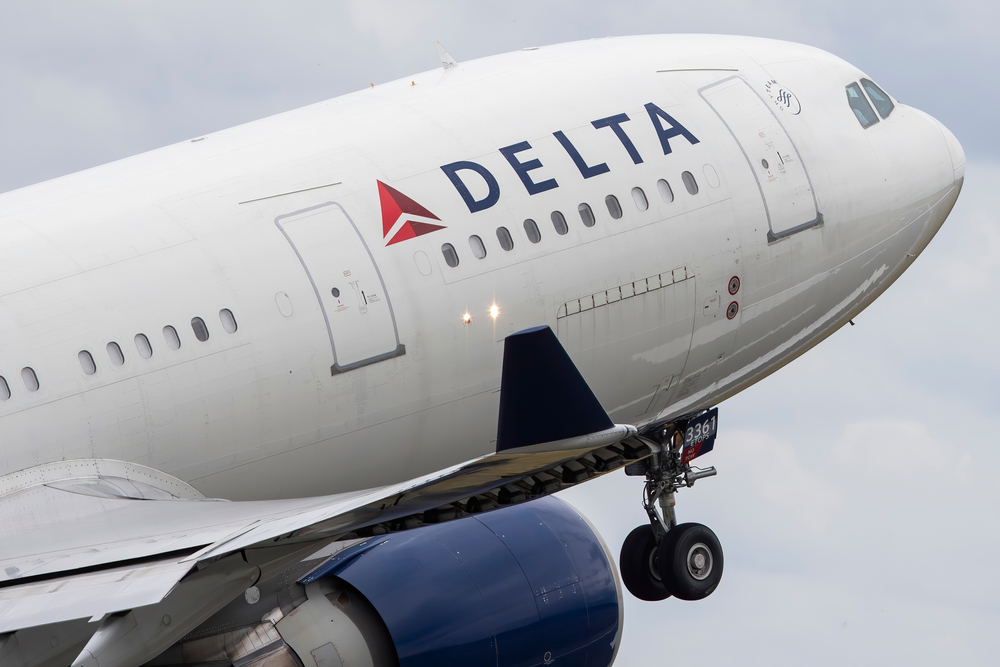
The last couple of years have been painful for both major airline carriers and the passengers who depend on them to get where they're going. Flight cancellations and delays continue to plague the industry as a result of widespread staffing shortages, cabin crew members have borne the brunt of unprecedented passenger aggression, and pilots have warned of dangerous cockpit conditions. But now—in a first for the industry—Delta is making a major shift aimed at improving the systems required to keep flights moving smoothly with the staff they need in the right mindset make it happen. Read on to learn what it is and why it matters.
TERKAIT:Delta Is Cutting Flights to These 5 Cities, Starting Sept. 5.
Delta employees have sounded the alarm about their working conditions.
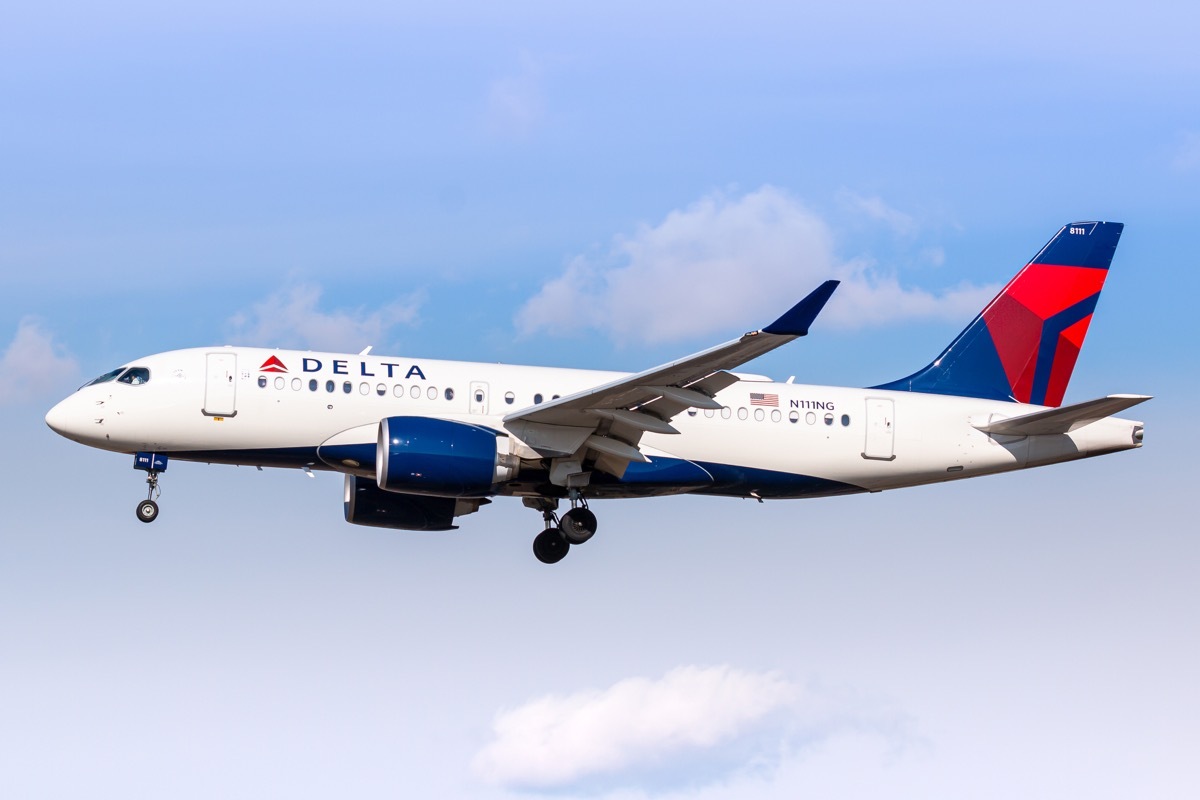
The short-staff conditions for aviation workers are taking their toll—not just among travelers inconvenienced by canceled or delayed flights, but on the stress of airline employees and their ability to do their jobs safely and effectively.
Delta Air Lines pilots have been holding demonstrations at airports as a way to raise awareness about pilot fatigue that could pose danger to passengers.
The Air Line Pilots Association (ALPA) wrote in a message to its members that COVID-related circumstances had raised "several opportunities for Delta to re-set its broken pilot staffing issue," as reported by Fox affiliate WSVN. The union message explained that issues are becoming harder and harder to ignore as passengers flock to the skies.
"Delta Flight Operations continues to run the operation at red line," the message to membership read. "So, if it feels like you are working more and seeing less control over your schedule—you are right; you are."AE0FCC31AE342FD3A1346EBB1F342FCB
In an industry first, Delta Air Lines announced a major shift to the way flight attendants get paid.
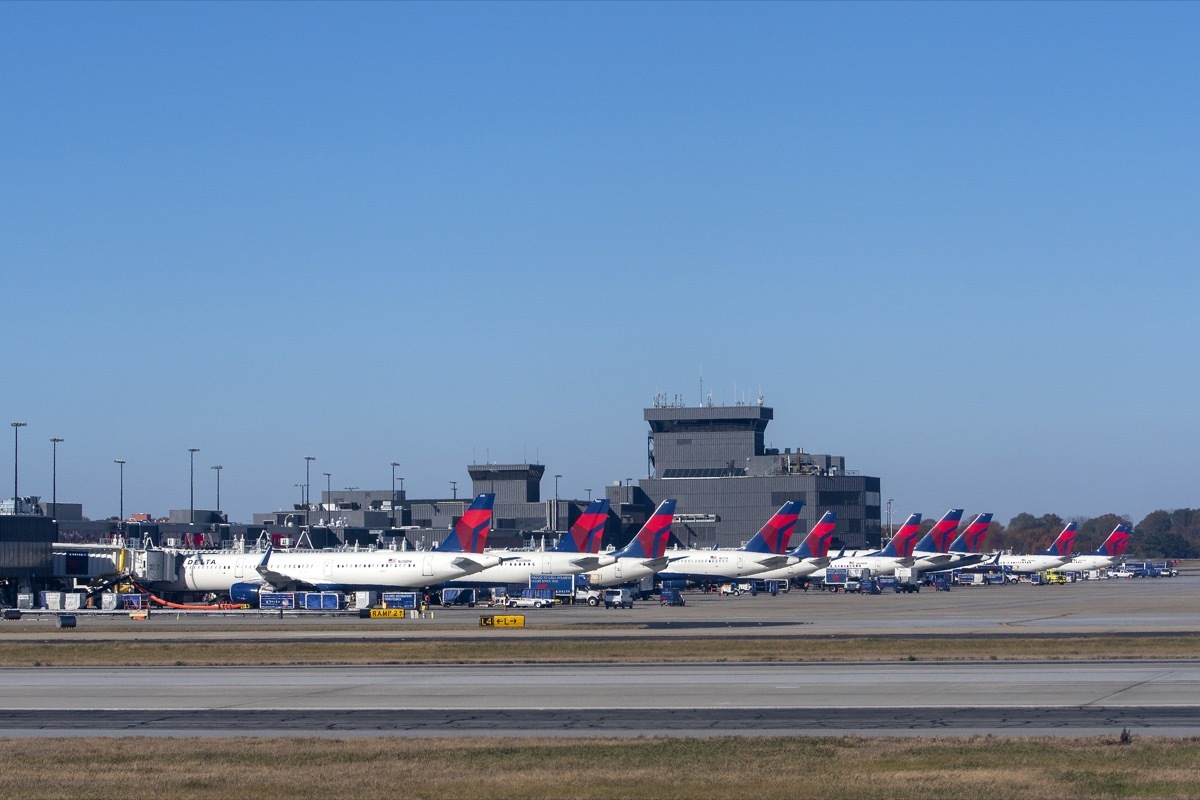
Delta announced it will start paying flight attendants during boarding. Getting paid for time spent on the clock may seem like a no-brainer, but the carrier's move is actually a first for a major U.S. airline. Typically, flight attendants start earning pay at the time the doors to the aircraft close.
According to a company memo cited by CNBC, Delta plans to begin the boarding pay (equal to half of flight attendants' hourly rates) on June 2. Delta will also up the boarding time for narrow-body flights to 40 minutes from 35, which the memo called "one of several steps we're taking to add resiliency to our operation."
Delta's policy change comes as the flight attendants are working to unionize.
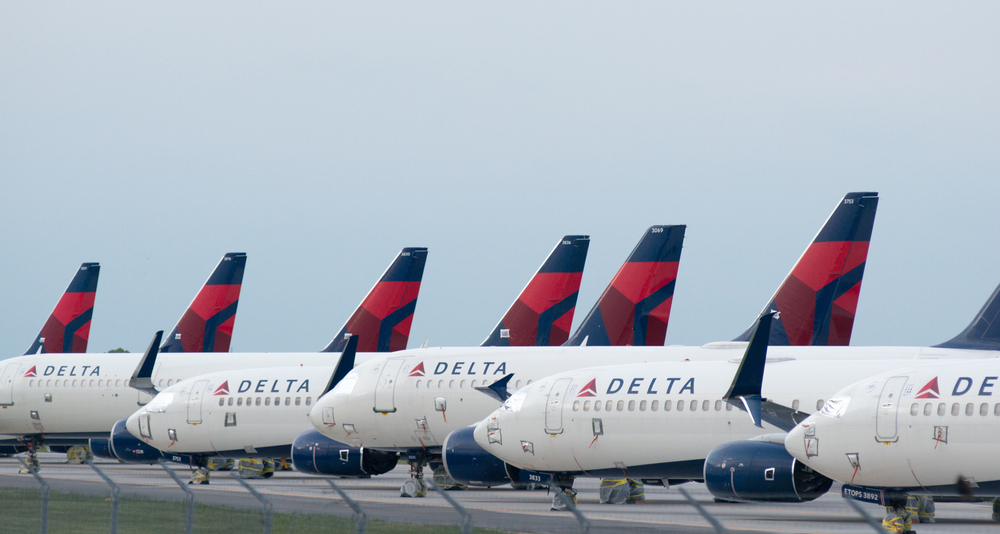
Currently, Delta's more than 20,000 flight attendants are not part of a union, as they are with other major domestic carriers. And the change in pay comes as Delta's flight attendants are doing a major unionization push. The pay changes originated from a union campaign by the Association of Flight Attendants that actually kicked off back in 2019, and then continued to gain steam as the COVID pandemic wrought havoc on the industry and its workers. Management made the move as the flight attendants get closer to a union vote.
RELATED: For more up-to-date travel news and tips delivered straight to your inbox, Mendaftar untuk buletin harian kami.
Delta recently announced an annual raise for flight attendants for the first time since prior to the pandemic.
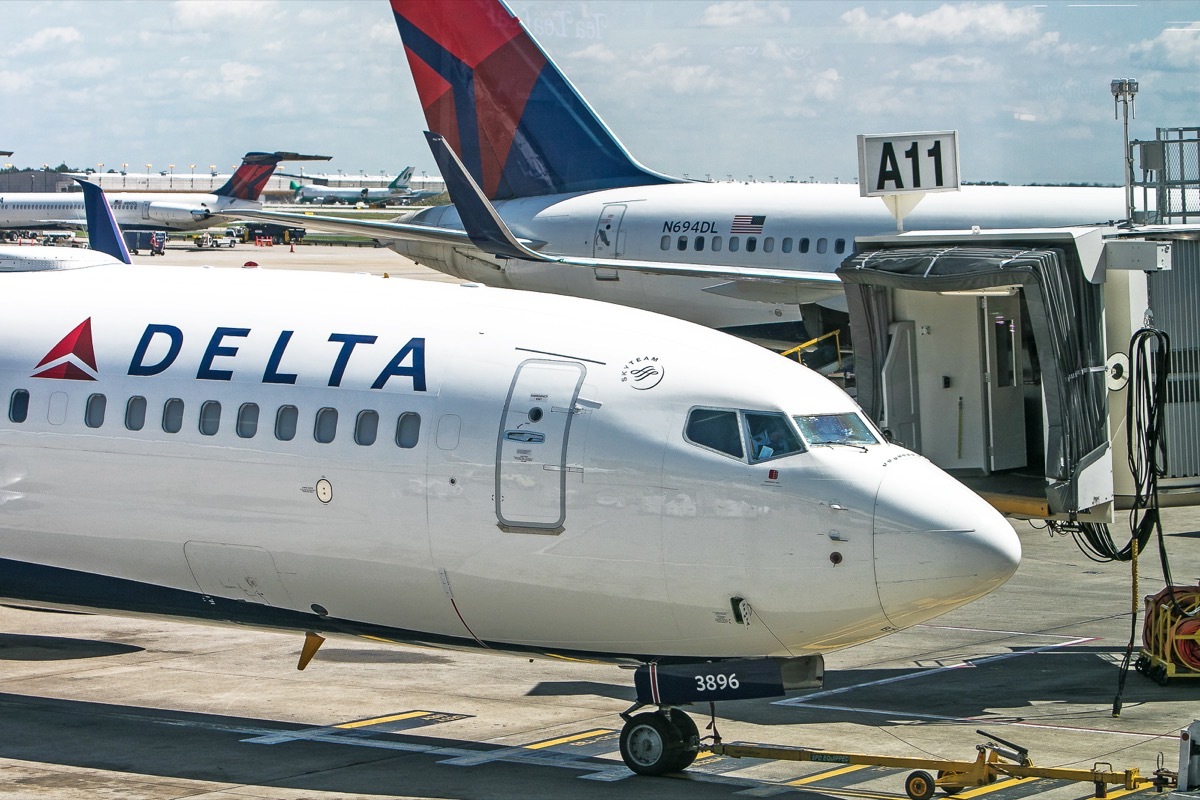
The boarding pay isn't the only effort to better compensate flight attendants amid mass shortages and troubling morale. Indeed, last month Delta Air Lines also announced a 4 percent pay raise. It was this group of employees' first annual raise since 2019, before the pandemic added new layers of on-the-job risks as well as complexity for flight attendants.
TERKAIT:If You Hear These 7 Words on a Flight, an Engine Has Failed, Pilot Says.

Makanan terburuk untuk istirahat malam yang baik, menurut para ahli tidur

